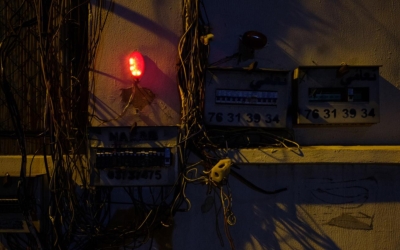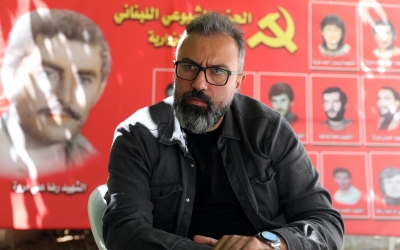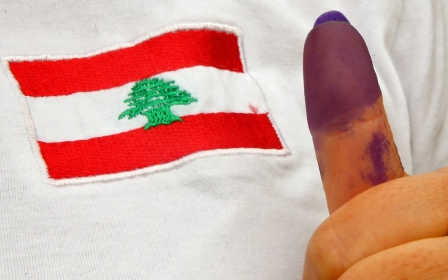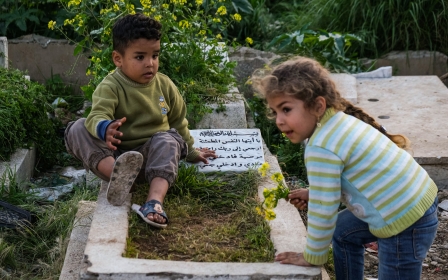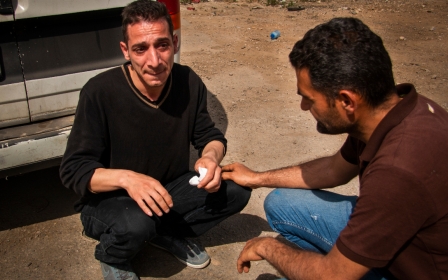Lebanon elections: Hope and apathy in first polls since economic meltdown
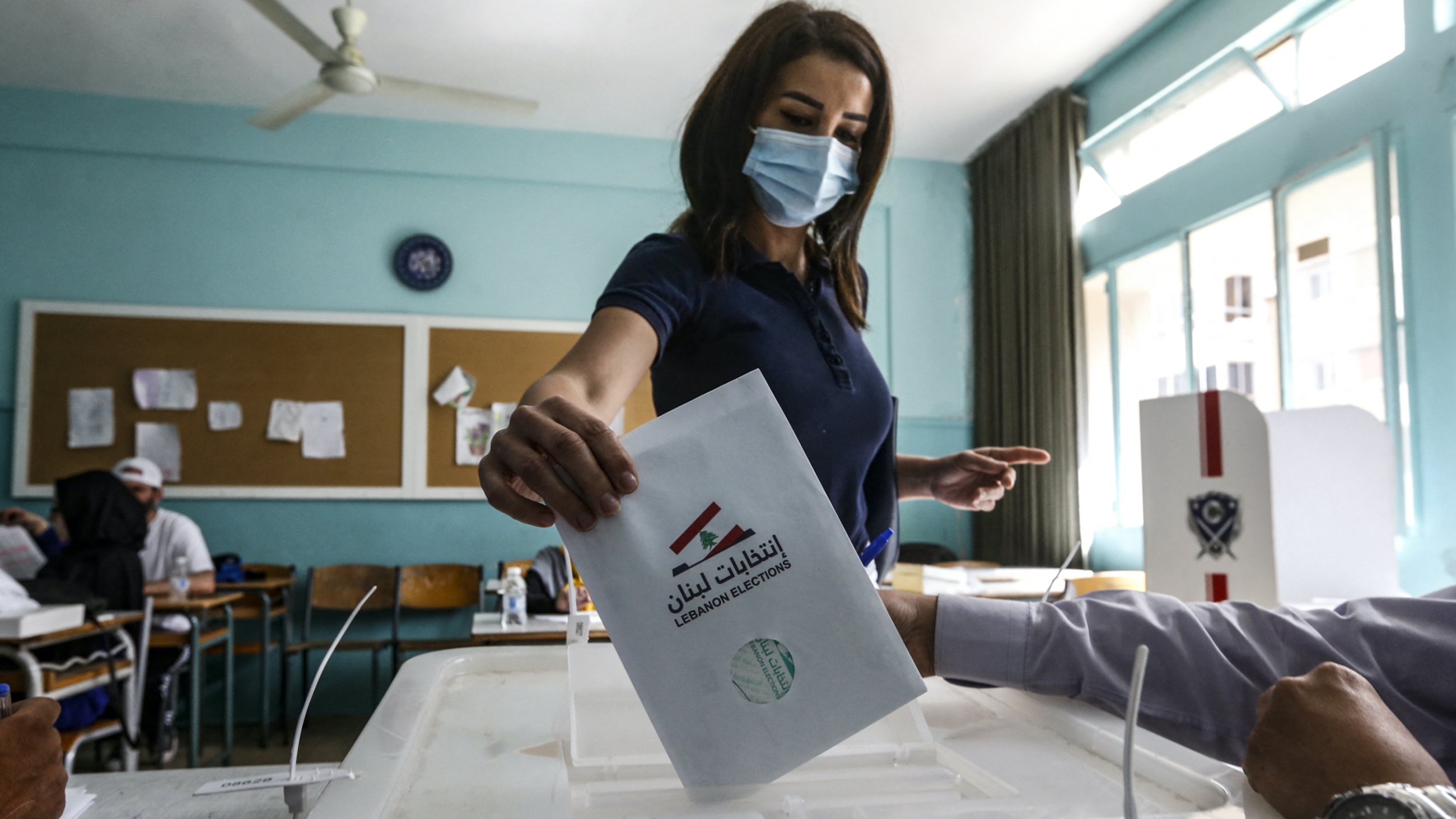
Lebanese voted on Sunday in the first elections since their country descended into a catastrophic economic crisis. It was a day that combined anti-establishment anger and apathy, reflected in the low voter turnout.
The low turnout came as a disappointment to many who believed that Lebanon’s multifaceted crises would drive a significantly bigger number of Lebanese to polling stations.
“We are very disappointed in the voter turnout which is incredibly low so far, with one hour left to go,” Omar Khalaf, a representative of the independent list Li Watani running in Beirut, told Middle East Eye.
“We came here today expecting a low turnout but not this low. The Lebanese population had a chance to turn things around today but let’s see if they actually used this chance.”
The interior ministry said 41.04 percent of registered voters cast their ballots on Sunday, around eight percent fewer than in 2018.
New MEE newsletter: Jerusalem Dispatch
Sign up to get the latest insights and analysis on Israel-Palestine, alongside Turkey Unpacked and other MEE newsletters
Violations
The number of voters was not the only issue that afflicted the election day. Sunday was also marred with violations in polling stations, with the Lebanese Association for Democratic Elections (Lade) reporting several instances where people's right to privacy in voting booths had been breached.
The independent elections monitor tweeted several photos of voters being followed into booths by a party member. It said this was being done despite instructions from the interior minister.
Lade also said that it was forced to withdraw some observers after receiving threats from Hezbollah and Amal Movement representatives, and that other observers were being subjected to pressure and threats.
Another major issue that election monitors had feared took place when voting centres across the country were hit with power cuts. In Tripoli and Beirut, voters used torches to vote in the darkness in polling stations.
On Sunday evening, votes were also being counted by torchlight in Beirut.
Lade had expressed major concern that power cuts could lead to electoral fraud, especially in the centres where counting takes place at night.
Enter the independents
Despite the low voter turnout, this election has seen more people throwing their lot in with independent candidates. Independents ran on a broad spectrum of lists, sometimes competing against each other.
Many Lebanese said they thought independents couldn’t be worse than the political elite that has run the country into the ground.
'I am 61 years old, my life is behind me, but I'm voting to change the country for the next generation'
- Beirut voter
In Beirut, anger and apathy have been driving forces in some voters' choices.
One woman told MEE that she was thrilled to be voting for Mohammad Nabil Badr, a candidate on the This is Beirut independent list.
"I am 61 years old, my life is behind me, but I'm voting to change the country for the next generation," she said, declining to give her name.
Whether or not this show of support for independents would translate into the winning of seats is a different matter. Some breakthroughs are expected, but Lebanon’s traditional sectarian heavyweight parties are nonetheless predicted to prevail.
Sunni abstentions
One significant shift from 2018 is the absence of former prime minister Saad Hariri and his Future Movement. Hariri withdrew from the political scene ahead of these elections, with the Sunni vote suddenly up for grabs in many locations.
In Beirut’s Tareek al-Jdideh, residents showed their support of Hariri by abstaining and throwing pool parties in the street.
Young residents hung out in inflatable pools, blasting music and dancing, while, unlike other areas in Beirut, business was as usual in the area, with most shops open.
Despite this gesture, many people told MEE that boycotting the elections is a bad decision and expressed their disappointment in Hariri for stepping down from politics.
One resident told MEE: “Not participating in the elections would only benefit the Shia duo [Hezbollah and the Amal Movement].”
The anti-Hezbollah sentiment was echoed in Gemmayzeh, a Christian stronghold for the Kataeb and the Lebanese Forces parties.
"People here know that they can only trust us. To face Hezbollah, we need a strong party," one Lebanese Forces activist said.
Others in Beirut were voting against the political elite in protest against the August 2020 Beirut port explosion that killed over 200 people and wiped out surrounding areas. Investigations into the blast have been stalled, which victims’ families have decried as an attempt to cover the responsible politicians.
“Over 200 people died in the Beirut explosion - these people cannot vote today but we have the chance to vote for them and hold the current political class, who are to blame for their death, accountable,” said Jean Colonian, 62.
Loyalism and disenchantment
Heading south, where Hezbollah and Amal Movement are expected to win the majority of the votes, many voters started their trip to polling centres very early in the morning to beat the traffic. However, the movement on highways remained fluid throughout the day - another sign turnout was low.
Standing outside a polling station in Bint Jbeil, Aida, 65, told MEE that voting for Hezbollah is the least she can do “after everything they’ve done for us”.
"I'm voting for the people who have always defended and protected us," she said.
The street outside Bint Jbeil polling station was crowded with people waiting to go in, while cars manoeuvred the narrow street it is on with difficulty. Among those waiting was Hassan Bazzi, an independent candidate for the Together For Change list.
"We are hopeful that we will be able to secure at least one seat," Bazzi told MEE.
Many southerners have expressed disenchantment with traditional parties in the south, with some saying they will either boycott or cast blank votes. But others have decided it was time for change.
"I want to vote for someone new. They may be lying [about change] but at least I won't be voting for someone who has been giving us the same lies for 30 years," said Ali, 36, who cast his vote for the Together for Change.
The desire for change was heard across different Lebanese regions, where people spoke out against the same issues: inflation, a massively devalued local currency, and a lack of basic services, medicine, electricity and fuel.
In Tripoli, around 83 km to the north of Beirut, Amer Bakkur, 27, said following the economic crisis, he lost his job in the waste management department of the city’s municipality and is currently unemployed.
"We have no work here in Tripoli. I voted for an independent candidate because I hope we can change the current situation," he said.
This article is available in French on Middle East Eye French edition.
Middle East Eye delivers independent and unrivalled coverage and analysis of the Middle East, North Africa and beyond. To learn more about republishing this content and the associated fees, please fill out this form. More about MEE can be found here.


